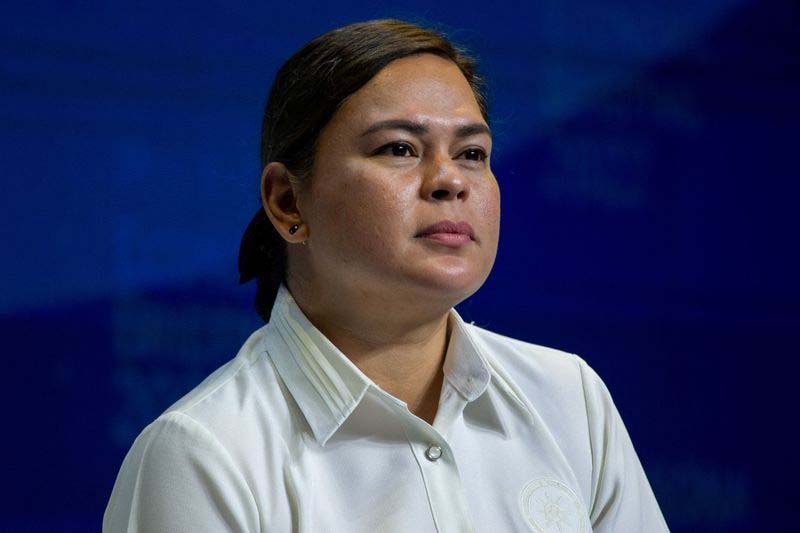MANILA, Feb 5: The House of Representatives in the Philippines has impeached Vice President Sara Duterte on Wednesday, following a significant number of legislators, primarily allies of the President, signing a petition for her removal amidst a contentious political rivalry.
According to House of Representatives Secretary General Reginald Velasco, at least 215 lawmakers endorsed the impeachment petition against Duterte, surpassing the threshold required for the House to proceed with the impeachment.
With sufficient support from House members, the impeachment complaint has been directed to the Senate, which will function as the impeachment tribunal responsible for trying the vice president, who is also the daughter of former President Rodrigo Duterte.
Though the vice president has not responded immediately to the House’s impeachment action, she and her father have been in a political conflict with President Ferdinand Marcos Jr. and his supporters, which includes many members of the House.
Regarded as a potential candidate for the presidency after Marcos’s term concludes in 2028, the vice president has faced multiple impeachment complaints, totaling at least four from various legislators and activist groups, related to a variety of issues.
Those complaints have encompassed a death threat she allegedly issued against the president, his spouse, and House Speaker Martin Romualdez, improper usage of her office’s intelligence funds, and her inaction against Chinese territorial assertiveness in the contested South China Sea.
The most recent impeachment complaint, which accuses the vice president of constitutional violations, betrayal of public trust, corruption, and other serious offenses, will be sent to the Senate for her trial, as confirmed by lawmakers.
Efforts for impeachment may encounter challenges due to time constraints. The House’s impeachment occurred on the final day of the congressional session before the commencement of campaigning for the midterm elections in May, which will elect new legislators for both the House and Senate. A special session may be convened to facilitate a swift trial for Duterte in the Senate.
The vice president’s legal issues have developed against the backdrop of her escalating political discord with the president and his allies. During an online news conference on November 23, she stated that she had hired an assassin to kill Marcos, his wife, and Speaker Martin Romualdez should she be killed, asserting that this threat was serious.
She later clarified that her statements were not meant as a threat, but rather an expression of concern for her personal safety.
The House has been probing the alleged misuse of 612.5 million pesos (approximately USD 10.3 million) in confidential and intelligence funds allocated to Duterte’s offices as both vice president and education secretary. She has since vacated the education role following intensified political disputes with Marcos.
In previous perjury hearings, she has declined to provide detailed responses, and strongly protested when her chief of staff, Zuleika Lopez, was temporarily detained for allegedly obstructing the investigation, although Lopez has since been released from hospital custody.
Duterte has leveled accusations against Marcos, his wife, and Romualdez for corruption, inept leadership, and attempts to suppress her due to speculations about her potential presidential ambitions in 2028.
Last year, the National Bureau of Investigation summoned Duterte to discuss her threats.
In response to her threats, the police, military, and national security adviser have increased security measures for the Marcos family.
Marcos and Duterte achieved significant electoral success as running mates in the 2022 election, yet have since experienced a fracture in their alliance due to differing opinions. In the Philippines, these positions are elected separately, leading to rivals holding the nation’s highest political offices.
Differences between Marcos and Duterte extend to their stances on China’s claims in the South China Sea, as well as their perspectives on the deadly anti-drug crackdown initiated by Duterte’s father, the former president and ex-mayor of Davao.
This brutal anti-drug campaign led to the deaths of thousands of predominantly low-income suspects, with investigations ongoing by the International Criminal Court to determine if these actions amount to crimes against humanity. (AP)


Leave a Reply